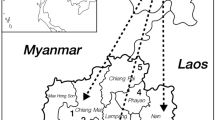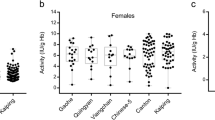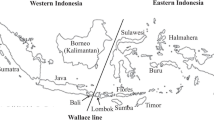Abstract
Glucose-6-phosphate dehydrogenase (G6PD) deficiency is the most common human enzyme defect. In this study, we aimed to perform a molecular investigation of G6PD deficiency in Tunisia and to associate clinical manifestations and the degree of deficiency with the genotype. A total of 161 Tunisian subjects of both sexes were screened by spectrophotometric assay for enzyme activity. Out of these, 54 unrelated subjects were selected for screening of the most frequent mutations in Tunisia by PCR/RFLP, followed by size-based separation of double-stranded fragments under non-denaturing conditions on a denaturing high performance liquid chromatography system. Of the 56 altered chromosomes examined, 75 % had the GdA− mutation, 14.28 % showed the GdB− mutation and no mutations were identified in 10.72 % of cases. Hemizygous males with GdA− mutation were mostly of class III, while those with GdB− mutation were mainly of class II. The principal clinical manifestation encountered was favism. Acute hemolytic crises induced by drugs or infections and neonatal jaundice were also noted. Less severe clinical features such as low back pain were present in heterozygous females and in one homozygous female. Asymptomatic individuals were in majority heterozygote females and strangely one hemizygous male. The spectrum of mutations seems to be homogeneous and similar to that of Mediterranean countries; nevertheless 10.72 % of cases remain with undetermined mutation thus suggesting a potential heterogeneity of the deficiency at the molecular level. On the other hand, we note a better association of the molecular defects with the severity of the deficiency than with clinical manifestations.
Similar content being viewed by others
Abbreviations
- G6PD:
-
Glucose-6-phosphate dehydrogenase
- REA:
-
Residual enzymatic activity
- NADPH:
-
Reduced nicotinamide adenine dinucleotide phosphate
- PCR:
-
Polymerase chain reaction
- RFLP:
-
Restriction fragment length polymorphism
- WHO:
-
World Health Organization
- Hb:
-
Hemoglobin
- DHPLC:
-
Denaturing high performance liquid chromatography
References
Daloii N, Daneshpajooh M (2008) Molecular basis of G6PD deficiency: current status and its perspective. Acta Med Iran 46:167–182
Ruwende C, Khoo S, Snow R et al (1995) Natural selection of hemi- and heterozygotes for G6PD deficiency in Africa by resistance to severe malaria. Nature 376:246–249
Wajcman H, Galactéros F (2004) Le deficit en glucose-6-phosphate déshydrogénase: protection contre le paludisme et risque d’accidents hémolytiques. C R Biol 327:711–720
Metha A, Mason PJ, Vulliamy TJ (2000) Glucose-6-phosphate dehydrogenase deficiency. Baillieres Best Pract Res Clin Haematol 13:21–38
Mason PJ, Bautista JM, Gilsanz F (2007) G6PD deficiency: the genotype-phenotype association. Blood Rev 21:267–283
Mehta AB (1994) Glucose 6-phosphate dehydrogenase deficiency. Postgrad Med 70:871–877
Luzzatto L (2006) Glucose 6-phosphate dehydrogenase deficiency: from genotype to phenotype. Haematologica 91:1303–1306
Beutler E (1994) G6PD deficiency. Blood 84:3613–3636
Daoud BB, Mosbehi I, Préhu C et al (2008) Molecular characterization of erythrocyte glucose-6-phosphate deshydrogenase deficiency in Tunisia. Pathol Biol (Paris) 56:260–267
Vulliamy TJ, D’ursot M, Battistuzzit G et al (1988) Diverse point mutations in the human glucose-6-phosphate dehydrogenase gene cause enzyme deficiency and mild or severe hemolytic anemia. Proc Natl Acad Sci USA 85:5171–5175
Vives Corrons JL, Zarza R, Aymerich JM et al (1997) Molecular analysis of glucose-6-dehydrogenase deficiency in Spain. Sangre (Barc) 42:391–398
Pietrapertosa A, Palma A, Campanale D et al (2001) Genotype and phenotype correlation in glucose-6-phosphate dehydrogenase deficiency. Haematologica 86:30–35
Bayoumi RA, Nur-E-Kamal MS, Tadayyon M et al (1996) Molecular characterization of erythrocyte glucose-6-phosphate deshydrogenase deficiency in Al-Ain District, United Arab Emirates. Hum Hered 46:136–141
Saad ST, Costa FF (2003) Mild hemolysis in a girl with G6PD sumare (class I Variant) associated with G6PD A-. Blood Cells Mol Dis 30:238–240
Sukumar S, Mukherjee MB, Colah RB et al (2004) Molecular basis of G6PD deficiency in India. Blood Cells Mol Dis 33:141–145
Nafa K, Reghis A, Osmani N et al (1994) At least five polymorphic mutants account for the prevalence of glucose-6-phosphate deshydrogenase in Algeria. Hum Genet 94:513–517
Fattoum S (2009) Evolution of hemoglobinopathy prevention in Africa: results, problems and prospect. Medit J Hematol Infect Dis 1(1):e2009005
Haj Khelil A, Laradi S, Miled A et al (2004) Clinical and molecular aspects of haemoglobinopathies in Tunisia. Clin Chim Acta 340:127–137
Rovira A, Vulilamy T, Pujades M et al (1995) Molecular genetics of glucose-6-phosphate dehydrogenase (G6PD) deficiency in Spain: identification of two new point mutations in the G6PD gene. Br J Haematol 91:66–71
Rodrigues MO, Freire AP, Martins G et al (2002) Glucose-6-phosphate dehydrogenase deficiency in Portugal: biochemical and mutational profiles, heterogeneity, and haplotype association. Blood Cells Mol Dis 28:249–259
Martinez di Montemuros F, Dotti C, Tavazzi D et al (1997) Molecular heterogeneity of glucose-6-phosphate dehydrogenase (G6PD) variants in Italy. Haematologica 82:440–445
Magdy M, El Humairy M, El Humairy AR (2006) Molecular characterization of new variants of glucose-6-phosphate deshydrogenase deficiency gene isolated in western province of Saudi Arabia causing hemolytic anemia. Pak J Biol Sci 9:1605–1616
Noori-Daloii MR, Hajebrahimi Z, Najafi L et al (2007) A comprehensive study on the major mutations in glucose-6-phosphate dehydrogenase-deficient polymorphic variants identified in the coastal provinces of Caspian Sea in the north of Iran. Clin Biochem 40:699–704
Tishkoff SA, Varkonyi R, Cahinhinan N et al (2001) Haplotype diversity and linkage disequilibrium at human G6PD: recent origin of alleles that confer malarial resistance. Science 293:455–462
Beutler E (2008) Glucose-6-phosphate dehydrogenase deficiency: a historical perspective. Blood 111:16–24
Chan DK (2008) Glucose-6-phosphate dehydrogenase deficiency: correlation between the genotype, biochemistry and phenotype. Ann Acad Med Singap 37:81–83
Acknowledgments
This work has been supported by the Ministry of Scientific Research and Technology and Competence Development (LR00SP03).
Conflict of interest
The authors give full disclosure of any conflict of interest.
Ethics
The work performed in our study is in accordance with the Ethical Guidelines of World Medical Association Declaration of Helsinki and has been approved by the Ethical Committee of the Children’s Hospital of Tunis.
Author information
Authors and Affiliations
Corresponding author
Rights and permissions
About this article
Cite this article
Laouini, N., Bibi, A., Ammar, H. et al. Glucose-6-phosphate dehydrogenase deficiency in Tunisia: molecular data and phenotype-genotype association. Mol Biol Rep 40, 851–856 (2013). https://doi.org/10.1007/s11033-012-2124-8
Received:
Accepted:
Published:
Issue Date:
DOI: https://doi.org/10.1007/s11033-012-2124-8




